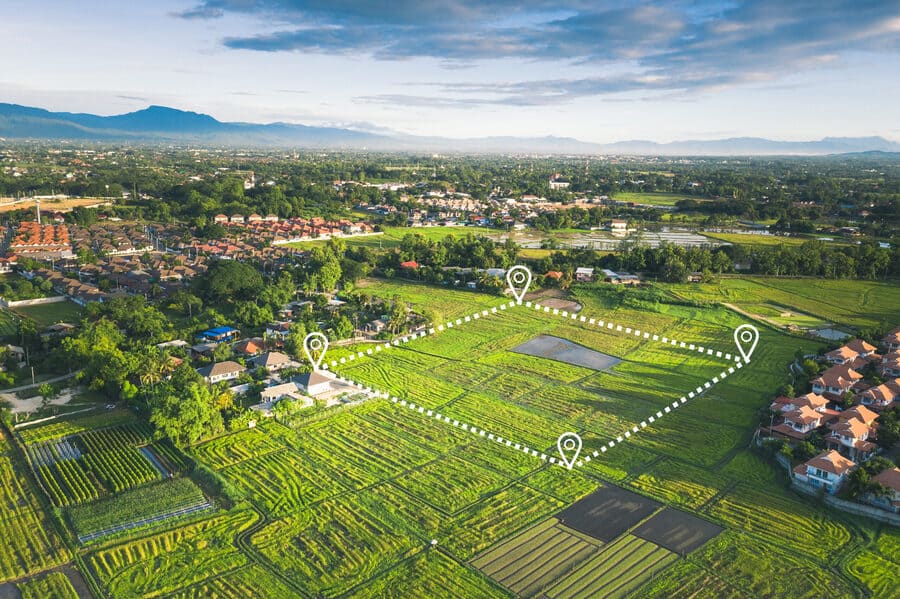Unlocking Opportunities: Understanding Land Mortgages

Investing in land can be a lucrative opportunity for many individuals, offering the potential for development, agriculture, or simply holding as an investment. Or maybe you just want to build your Grand Designs dream home! However, purchasing land often requires significant financial resources, which is where land mortgages come into play.
In this blog, we’ll explore the ins and outs of getting a mortgage to buy land, helping you understand how they work and whether they’re the right choice for your investment or home goals.
What is a Land Mortgage?
A land mortgage, also known as a land loan or land financing, is a type of loan specifically designed for purchasing land. Unlike traditional mortgages that are used to purchase homes or properties with existing structures, land mortgages are used solely for acquiring undeveloped land or lots.
How Do Land Mortgages Work?
Land mortgages work similarly to traditional mortgages, with some key differences. When you take out a land mortgage, the lender provides you with funds to purchase the land.
The land itself serves as collateral for the loan, meaning that if you default on the loan, the lender has the right to seize the land to recoup their losses.
Types of Land Mortgages
Self-build Mortgage
When individuals contemplate purchasing land for the first time, it often stems from a desire to construct their own home. Without an existing property, securing a conventional residential mortgage becomes infeasible. Instead, individuals must seek out specialised self construction financing.
This form of financing combines elements of a land mortgage with those of a mortgage tailored to the intended property. Unlike conventional residential mortgages, funds from a self construction financing arrangement are disbursed in stages. Initially, funds are allocated for land acquisition, followed by subsequent disbursements for purchasing building materials and covering construction costs.
For further guidance on self construction financing, just ask..
Agricultural Mortgage
Obtaining financing for agricultural land can serve various purposes, from supporting business endeavours to acquiring land for future investment opportunities.
Many individuals aspire to own small agricultural plots where they can pursue self-sufficiency by growing crops and raising livestock. Agricultural land is well-suited for such aspirations and can be acquired alongside residential properties or separately to complement existing homes.
Securing an agricultural land mortgage is contingent upon your land use plans and obtaining necessary permissions.
Woodland financing
Throughout the UK, private individuals have the opportunity to purchase woodland areas. Although such land typically lacks development permissions, it can serve as a tranquil retreat and represent a prospective investment.
Woodland financing adheres to similar guidelines as agricultural land financing.
Commercial development financing
Businesses seeking to acquire land for development purposes, whether for residential or commercial projects, often require specialised financing arrangements.
A commercial development mortgage is integral to a business’s strategic planning process.
Land Mortgages: Factors to Consider
Before taking out a land mortgage, there are several factors to consider:
Deposit
When securing a land mortgage, prospective buyers should be prepared for larger deposit requirements compared to traditional mortgages. These deposits typically range from 20% to 50% of the land’s purchase price, reflecting the higher risk associated with undeveloped land transactions.
Interest Rates
Land mortgages often come with interest rates that are higher than those of traditional mortgages. This adjustment in interest rates reflects the increased risk involved in financing undeveloped land. Prospective buyers should anticipate potentially higher interest rates when exploring land mortgage options.
Land Use Planning
Understanding the planning regulations and restrictions governing the land you intend to purchase is crucial. These regulations can significantly impact the land’s potential use and development opportunities. Prospective buyers should thoroughly research and consider planning to ensure their plans align with regulatory requirements and will get the all important planning permission.
Future Development Plans
Before finalising a land purchase, it’s essential to consider your long-term plans for the property. Evaluate whether the land’s intended use aligns with your investment objectives and financial capabilities. Assessing future development plans can help ensure that the land purchase serves your goals effectively and offers potential for growth and appreciation over time.
Consulting with Experts
Navigating the world of land mortgages can be complex, so it’s crucial to seek advice from professionals who specialise in land financing and real estate.
A mortgage broker, or financial advisor can provide valuable insights and guidance tailored to your specific situation.
Contact Peak Mortgages For Your Land Mortgage
Land mortgages offer a pathway to land ownership, building your dream home and investment opportunities, providing the financial resources needed to acquire undeveloped land. By understanding how land mortgages work and considering the factors involved, you can make informed decisions that align with your investment goals and aspirations.
Whether you’re purchasing land for development, agriculture, or investment purposes, a land mortgage can be a valuable tool in unlocking the potential of your land investment.
For inquiries about land mortgages or to discuss your financing options, please don’t hesitate to contact us today at 01773 826575. Our team of experts is ready to assist you in navigating the process and finding the right solution for your land purchase needs.

